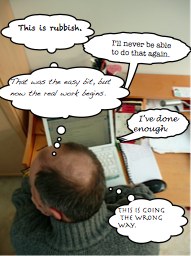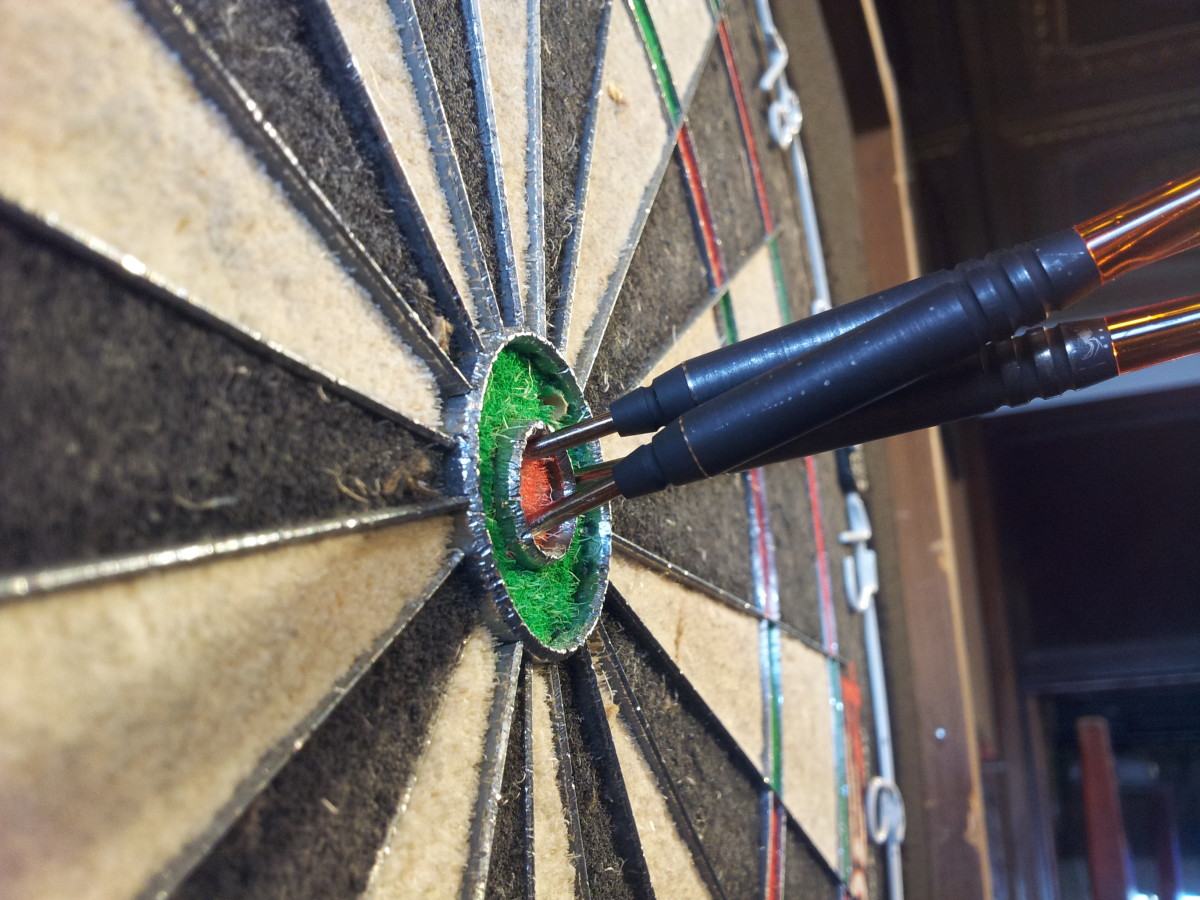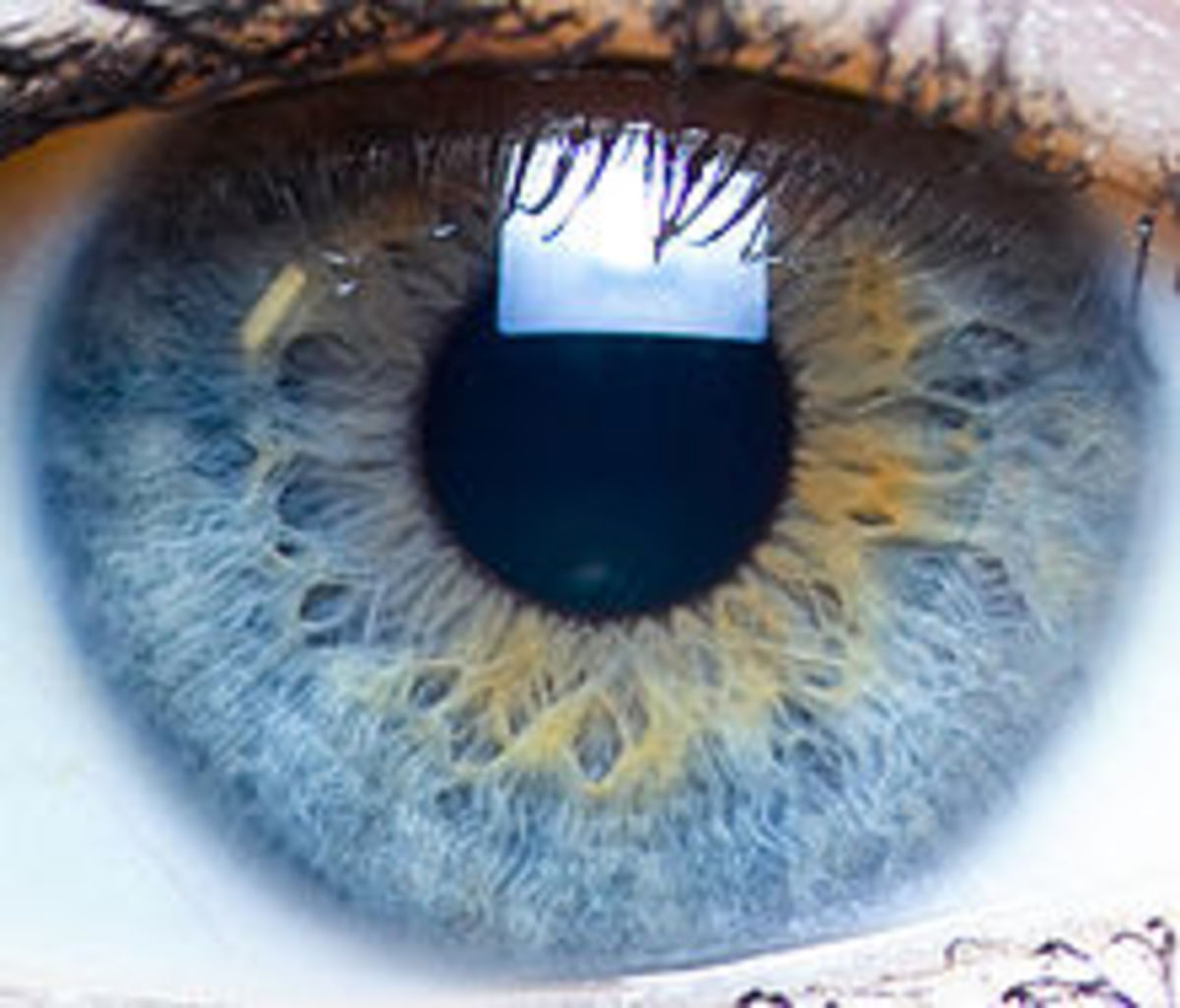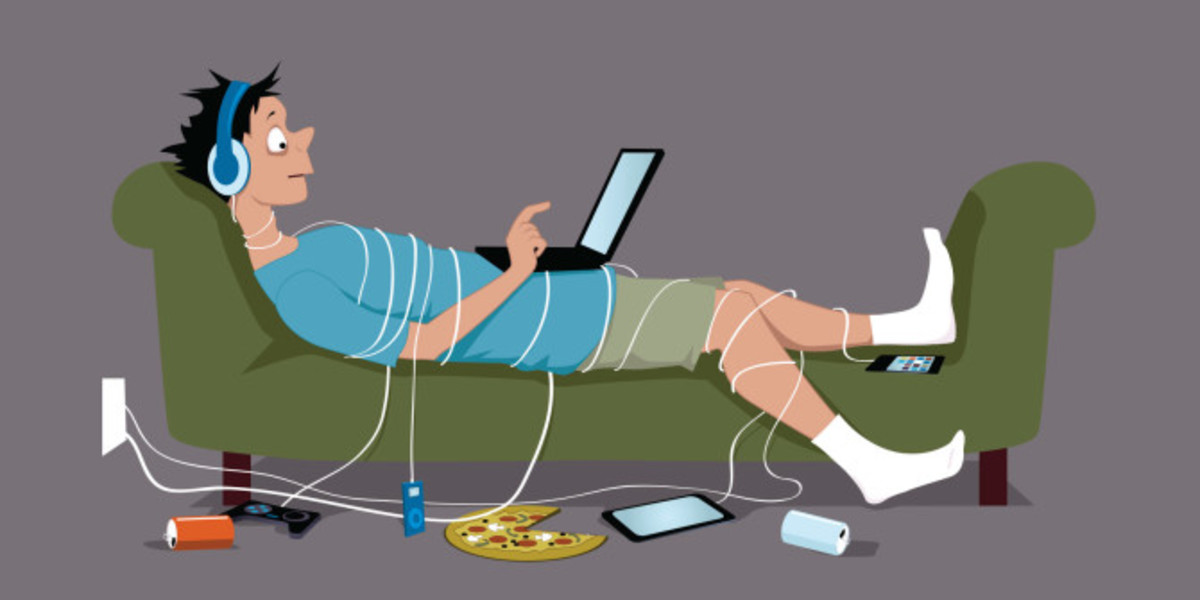How to Stop Beating Yourself Up

Are you your own worst enemy? Always criticizing yourself? Never satisfied with what you do? Always noticing what you do badly, but not what you do well?
And do you feel guilty about that?
If so, you are not alone. Researchers have found that around 80% of the average person's thoughts are negative, and many of those negative thoughts are self-criticisms.
For over a decade, Kristin Neff, Associate Professor of the University of Texas in Austin, has been researching into why we beat ourselves up and how to stop it. In her book Self-Compassion, she points out it's common for people to beat themselves up for beating themselves up! If you answered yes to the last of the questions above, then that’s a good indication you beat yourself for beating yourself, but even the first question could be used that way. If you believe you are your own worst enemy and that you shouldn’t be, that’s going to hurt.
How Can You Stop Beating Yourself Up?
Most people are more used to trying to build up self-esteem than they are to building self-compassion.

Kristin Neff describes self-esteem as asking, "How am I different to others?" In particular, we try to look for how we are better than others, and try to be above average. But it stands to reason that most of us cannot be exceptional and above average most of the time, and so this is a very stressful way to live. For all the popularity of the self-esteem movement, it has not created a happier society in most Western countries. You only have to watch a few minutes of an episode of My Sweet Sixteen to see this. (For those of you who don’t know this series, in it kids who are about to turn sixteen get ready for their big day by demanding everyone fulfil their wishes and by fuming if they don’t get everything they want. They scowl and moan and assume that if the big day doesn’t go as they planned it will be a disaster. They show little or no compassion for themselves or anyone else.)
Instead of trying to be better than everyone else, Neff sees the key to happiness as learning in stopping judging and evaluating ourselves and in having compassion for ourselves. Instead of looking for differences from others, when we have self compassion we look for similarities. We see the common human experiences.
While it might seem obvious that having compassion for ourselves will lead to more happiness, if you are used to beating yourself up, it’s likely you have some resistance to stopping it. You might want to stop punishing yourself and yet you go on doing it. (I certainly did this, long after I realised it wasn't productive and still catch myself doing it from time to time.)
The reason we go on beating ourselves up after we have realize it's not molding us into perfect people is because we fear what will happen if we stop. So it helps to notice what we believe might happen if we stop criticizing ourselves.
Watch this wonderful video where Kristin Neff explains the importance of self-compassion
Why do you beat yourself up?
Try this short exercise:
Ask yourself, "What do I fear would happen if I stop criticizing myself or beating myself up?"
Don't deliberate too long or censor that comes into your head, instead just notice the first thoughts. (If need be just ask the question again.)
Was your answer something along this lines of: I'll be lazy, do nothing, be selfish, or a horrible person?
If so, you are not alone. These are the kinds of reason most people go on beating themselves up. We think that by doing so it will somehow make us better people. How's it working for you so far? Me neither.
What happens is that instead of making you a better person, beating yourself up makes you a miserable person. And miserable people are (a) not much fun to be around and (b) not much fun to be. Beating yourself up doesn't make you less likely to do things you dislike, but more likely.
Neff found that beating ourselves actually demotivates us because it increases stress hormones and ultimately leads to depression, whereas self-compassion helps us get into action because it lowers stress levels and so makes it easier for us feel able to do things. Even before I read Neff’s book, I had noticed this in myself. The more I try to motivate myself by imagining the dire consequences of not acting, the less I feel able to act, the more I treat myself kindly, the more capable I feel.
Why you began self-criticizing
We've looked at why you beat yourself up nowadays, but this isn't a habit we suddenly pick up in adulthood. We might think we beat ourselves because of our failures, but actually it's the other way round. Our failures are a result of years of self-flagellation.
As children, people who are hard on themselves had parents who were also hard on themselves.
Parents who are self-critical pass this on to children in two ways:
- They model self-criticism and children soon learn that this is what they are "supposed" to do.
- They are more likely to criticize their children, and children then see this criticism as true. Adults' unkind words to children are often misheard and become even more unkind. Any parent who has ever heard their pre-schooler reprimand their toys for misbehaving will know what I mean!
- Exercise:
- Try writing down some of the critical things your parents said to themselves, and you will soon notice how many of them you use too.
- Try to do this without judging yourself or your parents, just noticing is enough for now, and sometimes it is all we need for change to start.
How to stop beating yourself up
So, are you now beginning to see that maybe it would be a good idea to stop the self-criticizing? And are you now wondering you do it?
There are many, many techniques or processes you can use to help stop beating on yourself. They all have a few things in common.
Acceptance
First you allow or accept your situation and your feelings. Notice that you feel sad, angry, ashamed apathetic or whatever. Allow that in this moment it is okay to feel the way you do.
I have written in this moment in bold and italics because it is so important. You can only ever do anything in this moment. Everything else is either a memory (the past) or a projection (the future.) We resist our feelings because we project that they will go on into the future and we see that as unacceptable. But we can only ever feel anything right now. Neff calls this mindfulness.
The amazing thing is that the moment we accept a feeling such as anger or sadness it starts to dissolve. This may sound the opposite of what you would expect, but think about it - to feel acceptance we simply can’t go on holding onto to anger or other negative feeling! You might feel anger again a second after feeling acceptance, and that’s okay. Just allow it again, and you will find it once again dissolves. A process I find very help for releasing emotions is the Sedona Method and my coach Liesbeth suggests thinking of this in a similar way to playing tennis. If you are used to playing with your right hand and switch to your left it takes a while for that to become familiar. If you are used to suppressing emotions and switch to allowing them it may take a while for that to become familiar too.
Going back to that statistic of most people’s thoughts being 80% negative - if yours become even 50% negative, that’s a huge change and you will start to feel hugely better. So it’s okay to make small changes, everything doesn’t need to happen overnight!

Treat Yourself Kindly
Neff includes mindfulness in her three elements of self-compassion, but unlike me she doesn’t put it first. For her treating yourself kindly is the first step. I don’t think it matters which order you do these in, and most likely they actually happen simultaneously. If you notice that you feel angry and then punish yourself for that you are practicing neither mindfulness nor self-kindness; on the other hand you practice both when you notice and allow the feeling.
Neff sees treating yourself kindly as accepting that life doesn’t always work out how we’d hoped and being gentle on yourself when this happens. It’s okay to make mistakes; that’s part of being human. It’s okay feel frustrated, lonely, hurt, disappointed and other negative emotions that we are so often told to push away. That’s also part of being human.

Accepting Our Common Humanity
Recognizing that our mistakes and emotions are part of being human is actually what Neff sees as the third element of self-compassion. When we are hard on ourselves it often feels as if we are only ones who mess up, have outbursts or fail at our ambitions. We feel isolated and separate from everyone else. Neff also sees it as important to recognize that our thought patterns aren’t created in a vacuum: how we think and react is a result of cultural and family patterns as well as our own individual ways of being. Anyone who has ever been around small children can see this in the way they copy adults, often without understanding what they are doing.

Attachment to Negative Thought Patterns
Positive affirmations are very fashionable these days and many people do find them helpful, but for me in my days of beating myself up they always felt false. I'd chant, "I am a positive, successful person," and instantly I'd think, "No, I'm not, my business failed, I have no money." (Or whatever crime I was currently frustrated about.)
The sense of fakeness just annoyed me further and left me feeling hopeless. Many other people feel the same way, and in Self-Compassion, Neff writes about her friend Rachel who almost always looked on the dark side of life and was rarely satisfied with her achievements. She tried affirmations and found them too much effort and way too phoney. (I can relate!) When Kristin Neff introduced Rachel to her way of practicing self-compassion however, Rachel found relief from her negative thinking patterns.
Rachel and I are not alone. Research done at the University of Waterloo in Canada found that positive affirmations could actually lower self-esteem in people who already had low self-esteem to begin with. The cause was the sense of fakeness described above, coupled with feelings of failure at not even being able to do the affirmations.
You could probably say that we were attached to our negative thought patterns, and you would probably be right. One reason people hold onto these patterns and continue to beat themselves up is because they don't realise the beliefs are just beliefs. They seem true.
For example, let's say you had to do a presentation at work or school. You were nervous beforehand and forgot some stuff. Then someone asked you to repeat what you'd said because they didn't hear it. So now, the presentation is over and you think, "I messed it up. I always do. I'm useless and stupid and will never get promotion/ good grades."
While this all feels true to you, notice how none of your self talk is fact. Even, "I messed up," is a judgment, not something that actually happens. If instead you focus on facts, it is easier to feel calm.
Coincidentally, in the middle of writing this, I got a call from young friend who had just done a presentation in class. When I asked how it went she said, "I messed up. The others said it went well, but I think I messed up."
Knowing my friend's tendency to be hard on herself I said that perhaps her fellow students were right and it went better than she thought. I asked what happened.
"I stuttered and I got my notes in the wrong order.”
I asked if she’d managed to sort the notes out. She said yes. I asked if she would have thought someone else had messed up if they had done what she did. She said no. She still wasn’t convinced she’d done okay, but she did feel better.
The next day she rang to say her tutor had given his opinion of the presentation. “I was perfect,” she said. “He had no criticisms at all.”
My friend had a clear illustration of how she judges herself harshly and is beginning to let go of those criticisms. Although it may be easier to do this when you are young like she is, it is possible to make changes at any age. I have heard of 90 year-olds who begin to treat themselves more kindly and I have witnessed it in someone over 80. It’s never too late to learn to love yourself.
Suggestions for Further Reading
Here are some articles and websites that you might find useful in understanding why it’s okay to stop beating yourself up, or in providing ways to help you become more compassionate towards yourself.
My articles: What is Self-Talk
Kristin Neff’s website Self-Compassion
The Sedona Method’s website has articles on Guilt and Shame, and why we hold on to them. I can’t provide a link to this site because it uses pop-up windows and links to these aren’t allowed on HubPages, but it is a reputable and very helpful site and I thoroughly recommend this method. It helped me hugely. Just search for Sedona Method or try community.sedona.com/forum.php - putting http:// before this address. (This is the community forum where you can get and give support with others, find out about free support calls and also find a coach.)
Non-violent Communication can help you develop more compassionate towards yourself and others.









